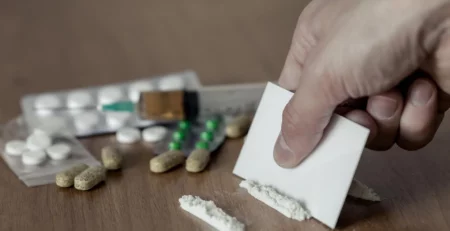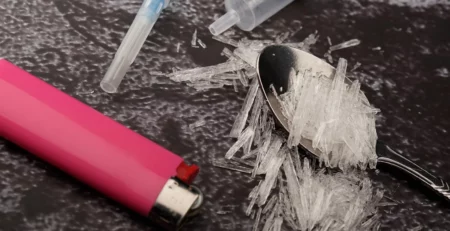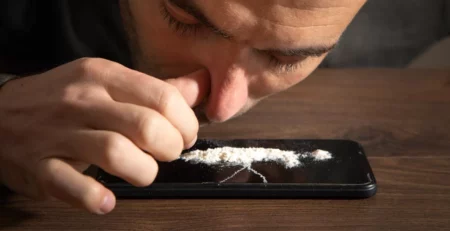How to Detox from Ketamine and Manage Withdrawal
Understanding Ketamine Withdrawals and Detoxification
You may already know how hard it can be to put down ketamine. At Icarus Nevada, we realize the process of ketamine withdrawal can be daunting, but knowing how to detox from ketamine safely is a core part of being able to quit successfully.
If you or your loved one are seeking options and support to detoxify from ketamine, you have arrived at just the right resource!
Our guide from Icarus Behavioral Health Nevada offers straightforward advice on managing withdrawal symptoms and highlights the importance of our evidence-based and professional guidance for a smoother detox journey. Without promising too much, we provide a glimpse into the paths available to regain control over your life, so keep reading now and reach out to Icarus Nevada at any time to discuss our proven support options!
24 Hour Ketamine Detox and Rehab Helpline – Call Now!
Key Takeaways
- Detoxing from ketamine is critical for addressing addiction, but doing so without professional help can lead to dangerous withdrawal symptoms such as anxiety and K cramps, making medically supervised environments essential.
- Succesful ketamine addiction treatment encompasses support for both physical and psychological symptoms, with programs at Icarus Nevada involving therapies like CBT and DBT and support systems providing valuable assistance for long-term recovery.
- Post-detox treatment options, including residential and outpatient programs, as well as coping strategies for managing cravings, are crucial for maintaining abstinence and preventing relapse. All of these are available with a full continuum of care offered at Icarus in Las Vegas.
Understanding Ketamine and Its Effects

Ketamine, a dissociative anesthetic developed in the 1960s, initially served the medical and veterinary fields for its tranquilizing properties. Its use extended into the treatment of resistant depression, but the late 1990s marked a turning point as it became a Schedule III controlled substance, acknowledging its potential for misuse and addiction.
As a dissociative drug, the recreational allure of ketamine lies in its ability to dissociate mind from body, yet this fleeting escape comes at a steep price—chronic use begets a host of physical and psychological adversities ranging from bladder complications to memory deficits and severe withdrawal symptoms.
A well-worn and effective path to freedom from ketamine’s clutches often begins with detox, a critical foundation for addressing the chemical imbalances wrought by misuse. Detoxing from ketamine without expert support can be perilous, with common ketamine withdrawal symptoms, including anxiety, cravings, and in some cases, debilitating K cramps.
It is at facilities like our programs at Icarus Behavioral Health Nevada that the ketamine detox process is not only safer but also a huge stride toward long-term recovery from ketamine withdrawal symptoms.
Recognizing a Ketamine Addiction
The insidious nature of ketamine addiction often manifests subtly, with behavioral changes that friends and family might notice as early warning signs. Some of the most common include:
- Secretive actions
- Noticeable decline in work or school performance
- Physical indicators such as bloodshot eyes and disrupted sleep patterns
- Psychological symptoms such as anxiety, depression, paranoia, and a skewed perception of reality
- Inability to curb ketamine use despite its negative consequences
- Tendency to indulge even in precarious situations
These symptoms, often referred to as acute withdrawal symptoms, underscore the psychological dependence that defines addiction, while physical symptoms and psychological withdrawal symptoms may also be present.
Ketamine’s effects—sedation, euphoria, and hallucinations—vary with dosage, but regardless of the immediate experience, the long-term repercussions on mental health and daily functioning are profound.
Acknowledging the gravity of these symptoms is not an exercise in fear but a crucial step toward seeking treatment. Admitting the presence of an addiction is a core part of the detoxification process, and support can help reclaim one’s life from the shadows of substance abuse.
The Importance of Professional Help During Detox for K

When confronting the beast of addiction, the valor of going it alone—while admirable—is often a misguided strategy. The ketamine detox process is fraught with challenges that demand professional intervention. At facilities like ours at Icarus Behavioral Health Nevada, the expertise of medical professionals ensures a detox from ketamine that is not only safer but also more effective in mitigating the risks associated with withdrawal.
Detoxification lays the groundwork for overcoming physical withdrawal symptoms and dependence, and it is the precursor to a more comprehensive ketamine addiction treatment that addresses both the immediate withdrawal and the long-term recovery process.
Medically Supervised Detox for Ketamine
The cornerstone of safe detoxification from ketamine lies in medical supervision, where a controlled environment ensures constant monitoring of vital signs and the prompt management of any arising complications. In the sanctuary of our upscale setting of Icarus in Las Vegas, away from the triggers of everyday life, individuals receive the support needed to navigate the tumultuous initial stages of withdrawal.
Should the need arise, medications can be judiciously employed to alleviate withdrawal symptoms, curbing the intensity of cravings, agitation, or depression that may surface.
This tailored approach to the ketamine detox process at Icarus Nevada, where safety and comfort are paramount, exemplifies the advantages of choosing a medically supervised path.
Therapy and Counseling as Part of Treatment for Ketamine Abuse
Once the physical shackles of ketamine dependence are addressed, the psychological chains await unraveling. Therapy, particularly Cognitive Behavioral Therapy (CBT) and Dialectical Behavioral Therapy (DBT) stands as powerful tools, guiding individuals through the maze of mental and emotional challenges associated with ketamine abuse. The counseling room becomes a crucible for transformation, where triggers are identified and strategies for relapse prevention take shape.
The camaraderie of group therapy and support networks like AA or SMART Recovery provides a tapestry of peer support, enriching the recovery journey with shared experiences and wisdom. The treatment at Icarus Behavioral Health Nevada extends beyond detox, offering a haven for those grappling with co-occurring mental health conditions that may have contributed to self-medicating behaviors.
Our Self-Help Tips for Ketamine Detox

As the time-worn adage goes, every journey begins with a single step, and the path toward detoxing from ketamine is no different. There are strategies to employ at the outset that lay a foundation for the road ahead. Tapering ketamine consumption rather than abruptly stopping—also known as going “cold turkey”—can offer a more manageable route through the withdrawal process.
Whether you are using eskatmine as a spray, ketamine troches ordered by mail, or prescribed ketamine through infusions of take-home supplies, the method remains the same
Clearing one’s environment of drug paraphernalia and reminders is a tangible act of commitment to sobriety, eliminating reminders of past use. Journaling can also serve as a powerful tool, a written testament to the resolve to remain drug-free while nurturing relationships with loved ones provides an emotional bulwark against the trials of detox.
However, the solitary path is strewn with risks, including heightened withdrawal symptoms and the specter of relapse. The decision to take time off from daily obligations can create the necessary space for recovery, as the body and mind traverse moodiness, fatigue, and depression.
Should self-doubt arise, remember that the support team at Icarus Nevada is but a call away, ready to assist in fortifying your commitment to a ketamine-free life.
Get Effective Ketamine Treatment Options – Reach Out Now!
Creating a Support System for Lasting Recovery Success
The battle against ketamine addiction is seldom won in isolation. The formation of a robust support system from the very start of recovery efforts can significantly bolster the chances of achieving long-term abstinence. Such a network, encompassing family, non-using friends, and recovery-based support groups, offers a sense of community and accountability that is indispensable.
The power of social support extends beyond mere companionship; it equips individuals with the tools to manage chronic stress, fostering a sense of belonging and contributing to a fulfilling life. In therapy, the encouragement to find a sponsor or mentor and immerse oneself in support groups becomes a cornerstone of the recovery process, providing a sounding board for the trials and triumphs of the journey.
Maintaining a Healthy Lifestyle
In the tapestry of recovery, self-care threads are interwoven with the larger patterns of successful addiction treatment. A healthy lifestyle is essential for navigating the emotional ebbs and flows that accompany ketamine detox. Adequate nutrition and hydration are not mere acts of sustenance but acts of healing, replenishing the body’s reserves, and fortifying one’s resolve.
The benefits of regular exercise go well beyond the physical, extending into the mental and emotional realms, offering a natural counterbalance to withdrawal and a bulwark against relapse.
Coping Mechanisms for Ketamine Cravings

The road to recovery is lined with obstacles, and intense cravings for ketamine are among the most formidable. To navigate these urges, a strategic withdrawal is often necessary—steering clear of individuals and environments that echo past substance use.
The adoption of new hobbies can fill the void left by ketamine, providing a sense of purpose and joy in sober living. Some examples of hobbies that can be beneficial include:
- Painting or drawing
- Playing a musical instrument
- Gardening
- Cooking or baking
- Writing or journaling
- Photography
- Yoga or other forms of exercise
In addition to hobbies, mindfulness practices such as meditation and breathwork offer an inner sanctuary, equipping those putting down ketamine with the skills to face down cravings.
Post-Detox Ketamine Treatment Options at Icarus Nevada
Emerging from the initial battle of detox, the war on addiction wages on, demanding a strategy for sustained victory. Icarus Nevada’s residential treatment provides a comprehensive environment tailored to nurturing recovery, where every aspect of holistic health and well-being is addressed.
For those balancing recovery with personal responsibilities, outpatient treatment options such as our convenient Partial Hospitalization Programs (PHP) and Intensive Outpatient Programs (IOP) offer support and flexibility.
The importance of some form of aftercare cannot be overstated, as continued treatment and family involvement are pivotal in cementing the gains made during detox and steering clear of relapse.
At Icarus Nevada, this is built into our offerings, with aftercare planning specific to each client and involvement with our alumni program available for all who graduate from our programs.
Get Help to Quit Ketamine at Icarus in Nevada Today

For you or your loved one who is struggling, the direct route to a life untethered from ketamine begins with a single, courageous call—reaching out for help. At Icarus Behavioral Health Nevada, a personalized detox plan awaits, crafted with evidence-based practices to ensure your successful transition to sobriety. There is no need to navigate this path alone.
A free, confidential assessment of your insurance and options for treatment support is available from our caring Admissions team at any time. Take heart and take action; our programs offer a lifeline to a future of health and happiness—call Icarus Nevada today and embrace support that will transform your life!
Up To 100% of Rehab Costs Covered By Insurance – Call Now!
FAQs on the Ketamine Detox Process
What makes ketamine addictive?
Ketamine is addictive due to its ability to create euphoria and dissociate the mind from the body, leading to psychological and physical dependence, making it challenging to quit without professional support.
Can I detox from ketamine at home?
Yes, but detoxing from ketamine at home can be risky and may lead to worsened withdrawal symptoms and relapse. It’s safest and most effective to seek professional, medically supervised detox.
What are common ketamine withdrawal symptoms?
Common ketamine withdrawal symptoms include anxiety, cravings, mood swings, and in severe cases, K cramps and bladder issues. Keep in mind that each individual’s experience may vary.
How long does it take to detox from ketamine?
Detox from ketamine can vary based on individual factors, so it’s best to seek medical support for a safe and comfortable process. The ketamine withdrawal timeline suggests that acute symptoms begin to subside after 3 to 5 days.
What treatment options are available after ketamine detox?
After ketamine detox, you may explore treatment options such as residential treatment, outpatient programs, and aftercare support to maintain recovery and prevent relapse. Consider reaching out to a facility like Icarus Behavioral Health Nevada for proven support!











